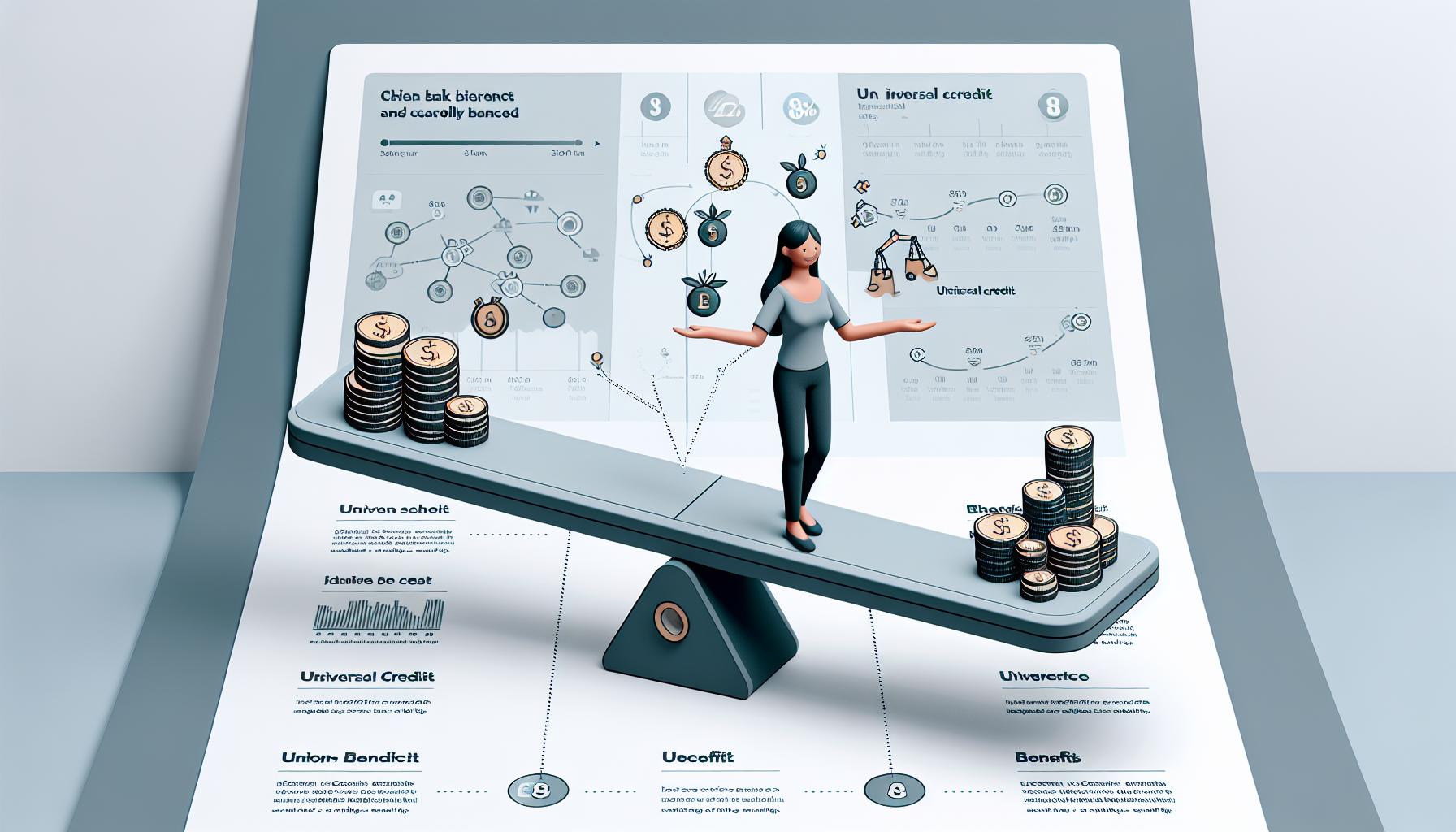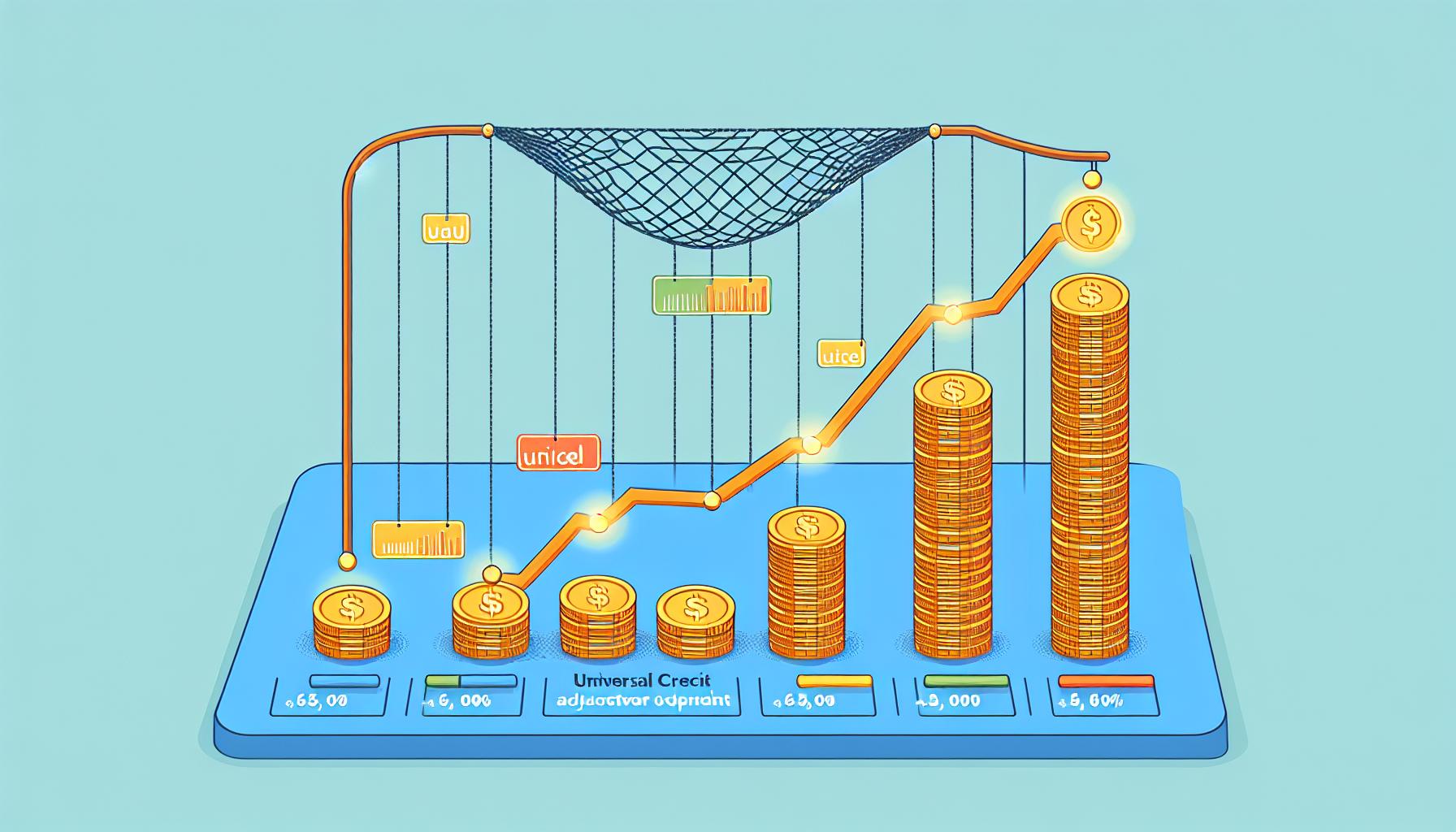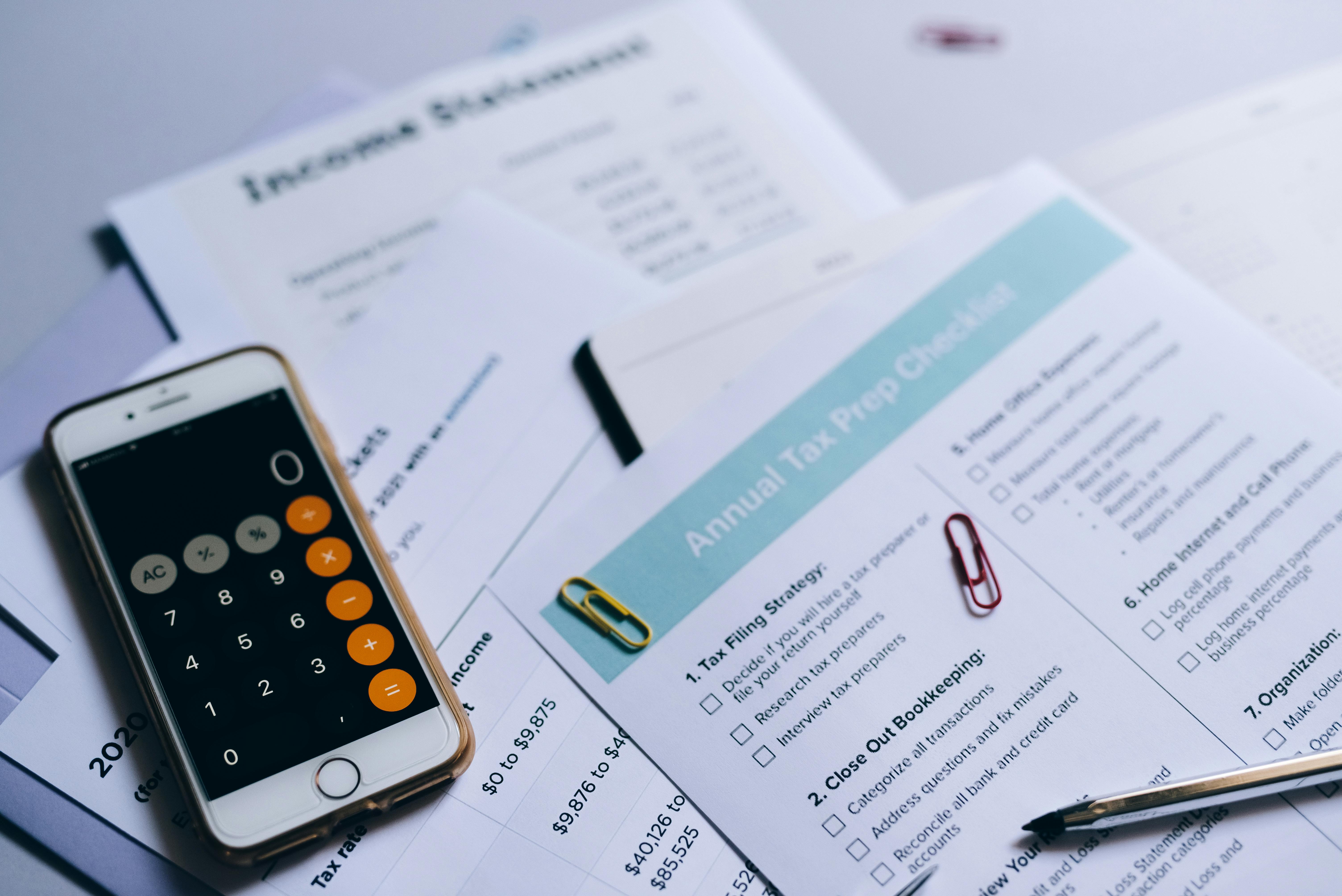January 20, 2024
£1,400 Earnings: Your Universal Credit Guide
Exploring the waters of Universal Credit can be tricky, especially when you're balancing work with your claim. You're probably wondering how earning £1,400 a month impacts the amount of Universal Credit you'll pocket. It's a hot topic for many, and you're not alone in seeking clarity.
Your earnings play a crucial role in determining your Universal Credit payment, and it's essential to understand the ins and outs. After all, it's about making sure you're getting what you're entitled to. Stick around to unravel the mystery behind Universal Credit calculations and discover what you could be taking home each month.
How Universal Credit is Calculated
Let's break down how Universal Credit is calculated if you're earning £1,400 a month. Think of your Universal Credit entitlement as a seesaw. On one side is your maximum entitlement, and on the other, your earnings push the seesaw down, reducing the amount you get.
The Department for Work and Pensions (DWP) starts with a maximum amount that depends on your circumstances, like whether you have kids, need help paying rent, or have a disability. We'll then look at your take-home pay — that's your earnings after tax, National Insurance, and pension contributions. From your earnings, a work allowance is deducted if you're eligible – this is like the part of your earnings that doesn't affect your Universal Credit. Only after this threshold does the taper rate kick in. The taper rate is currently 55p for every £1 you earn over your work allowance. So, for every pound past this allowance, they shave off 55p from your maximum Universal Credit.
Here’s a simple way to see it:
Maximum Universal Credit entitlement (varies)
Minus work allowance (if applicable)
Minus 55% of earnings over the work allowance
Common Misunderstandings and Tips
One common mistake is not reporting income changes every month which can lead to either overpayments or underpayments. To avoid this, report any income changes immediately via your online Universal Credit account.
Also, some think that additional hours won't benefit them due to the reduction in Universal Credit, but remember, your overall income will increase with more work. It's a balance you'll want to strike based on your personal situation.
Employed vs Self-Employed Calculations
For the self-employed, there's a minimum income floor which might apply to you if you’ve been in business for more than a year. It assumes a certain level of earnings when calculating Universal Credit, regardless of what you actually earn. But, if your real earnings are higher, they'll use that figure instead.
Making Universal Credit Work for You
To make the most of Universal Credit while earning, consider increasing your pension contributions to reduce your take-home pay and thereby increase your Universal Credit entitlement. Also, reporting childcare costs can increase your work allowance, giving you that extra bit of breathing room.
Understanding the Earnings Threshold

When diving into the nitty-gritty of Universal Credit, it's essential to get your head around the earnings threshold concept. Think of it as the financial tipping point that influences your entitlement.
Let's break it down in simple terms. If you're earning £1,400 a month, you need to know where that places you in relation to the earnings threshold. This isn't just a single figure – it's calculated uniquely for each person, based on things like your living situation, whether you have children, and if you're experiencing a disability.
Your 'work allowance' is the magic number here. This is the amount you can earn before your Universal Credit starts to reduce. Think of it as a personal earnings buffer.
If you're getting support for housing costs, your work allowance is lower compared to those who aren't.
Picture your earnings as a bucket of water, with each pound representing a drop. As you pour more water into the bucket, it begins to fill. Once it reaches the work allowance level, each additional drop (or pound you earn) causes a small amount to spill out – this 'spillage' is the taper rate, currently set at 55p for every £1 over your allowance.
Here's the thing: A common mistake is not updating your earnings information which can lead to receiving less than what you're entitled to, or even an overpayment that'll need to be returned. Ensure you report income changes promptly to avoid these issues.
In various scenarios, you might consider different work patterns or additional income streams. Understand how these will impact your benefits before making changes; perhaps a shift in working hours or a new side gig could play a crucial role in how you balance your overall income and benefits.
To integrate Universal Credit effectively with your earnings:
Regularly update your circumstances on your online account.
Use an online Universal Credit calculator to estimate how changes will affect your payments.
Reach out to a financial advisor for tailored advice, particularly if you're self-employed and exploring fluctuating income.
Remember, integrating your earnings with Universal Credit is like maintaining balance – it takes constant adjustment to remain upright and moving forward.
How Earnings Impact Universal Credit Payment

Imagine Universal Credit as a safety net that adjusts to your earnings. As you pocket more from work, the net stretches, and your Universal Credit tapers off. This design ensures you're better off for every hour you put in on the job.
Understanding Work Allowance
Think of your work allowance as a personal earnings pocket – money you can earn before your Universal Credit payment starts to decrease.
The size of this pocket varies:
If you’re without housing support, it’s larger, at £293.
With housing support, it shrinks to £515.
Here's the simple math: for every £1 you earn over this allowance, your Universal Credit reduces by 63p. Yep, you will always have more cash in hand even though the reduction.
Monitoring Your Earnings
Keeping track of your earnings is like having a health check for your finances. If you're employed, your employer will funnel this information through HMRC to update your Universal Credit. But, when you're self-employed or have variable income, it's your show. Regularly reporting accurate earnings is not just necessary; it's a potential game-changer to avoid overpayments.
Exploring Through Earnings Peaks and Troughs
Different months might bring in different dough. During a spike, your Universal Credit dips, but it's no cause for alarm. When earnings swing back down, your Universal Credit is there to catch you. This ebb and flow mean you're cushioned against the unpredictability of life.
Beyond the Work Allowance Threshold
What happens once you’re rolling in more than the allowance? Your payment smooths out into a steadier decline - the taper rate becomes your new playmate here. Don’t let the word 'taper' fool you, though. You're still on the winning side for every extra pound earned.
Keep these tips in your back pocket to navigate Universal Credit with earnings:
Always input accurate income details
Use the online Universal Credit calculator for a quick financial temperature check
Consult with a financial advisor – they're like personal trainers for your wallet
Other Factors that Affect Universal Credit Payment
When you're trying to figure out your Universal Credit payment, it's key to remember other factors come into play, not just your monthly earnings. It's a bit like baking a cake – the final outcome depends on a mix of ingredients, not just the flour!
Housing Costs: Much like a surprise ingredient that can make or break a recipe, your housing costs can significantly influence your Universal Credit. If you're paying rent or a mortgage, these costs might be covered in part by your payment. But, if your living arrangements change, so might your Universal Credit.
Savings and Capital: Picture your savings as a cushion; the thicker it is, the less impact a fall might have. If your savings or capital are above £6,000, they'll start to affect your Universal Credit – think of it as if they cushion the fall a bit too well, so your payments reduce gradually. Having over £16,000? Well, that means you generally won’t be eligible for Universal Credit at all.
Other Benefits: Imagine each benefit as a tile in a mosaic – they all create the bigger picture of your support. If you're receiving other benefits like Carer's Allowance or Statutory Sick Pay, they'll be taken into account, as they're part of your total income.
Childcare Costs can be a game-changer. If you’re paying for approved childcare, Universal Credit may cover up to 85% of your costs, up to a certain limit. It's akin to a subsidy on fuel when you're driving long distances; it can help you go further.
Disability and Health Conditions: Life sometimes throws curveballs, and health conditions or disabilities might be yours. If this is the case, Universal Credit could offer additional support, akin to having an extra gear in a tough cycling race.
And let's not forget the Benefit Cap. It's the ceiling of what you can get from certain benefits. Think of it like the cap on your internet data usage – if you hit the limit, you can't get more, even if your situation suggests you need it.
Always keep your information up to date, like adjusting your mirrors for a new driving position.
Use the Universal Credit online calculators – they're like satnavs guiding you through the maze of possible outcomes
How to Check Your Universal Credit Amount
Keeping track of your Universal Credit (UC) entitlement can feel a bit like exploring a maze – but it doesn't have to. If you're earning £1,400 a month, you'll want to know exactly how this affects your UC. Here are some straightforward strategies to keep you informed and in control:
To get started, jump onto the GOV.UK website. This is your digital gateway to managing UC. It's like having a personal finance assistant at your fingertips, available 24/7. Once there, you can use their dedicated Universal Credit calculator. Plug in your details, including your income of £1,400, and gently tap that calculate button. Like magic, you'll see an estimate tailored just for you.
You might be thinking, 'what if I make a mistake on the form?' It's a common worry. But remember, everyone makes errors now and then. To avoid this, double-check your entries. If you do slip up, no panic – you can always update your information online. Just think of it as texting a friend to correct a time for coffee; it's that simple.
For a more personalised touch, you may consider using a third-party benefits calculator. Many of these tools offer additional insights and can cross-reference other benefits or tax credits you could be eligible for. Remember, it's like piecing together a financial puzzle – every little piece, or in this case, penny, counts.
And let's not forget about reporting changes in circumstances. Imagine your £1,400 earnings shoot up or down; you must log in and report this as soon as possible. It's like updating your status on social media; keeping things current keeps you connected to the right UC amount.
If self-employment is your gig, you've got a slightly different scene. You'll need to report your monthly income and expenses – think of it as jotting down notes in a diary. Staying organised will help you present the real picture of your business finances to the UC team.
Finally, if you're unsure or feeling a bit lost, there's no shame in reaching out for help. In every community, there are advisory services willing to guide you – consider them your Universal Credit navigators. Whether online, over the phone, or face-to-face, grab that lifeline if you need it.
Conclusion
Exploring Universal Credit while earning £1,400 a month can be straightforward once you're armed with the right information. Remember, your payment is tailored to your specific circumstances, so it's essential to keep your details up to date. Utilise the tools available on the GOV.UK website and consider the support from advisory services to ensure you're making the most of your benefits. By staying informed and proactive, you'll be in a better position to manage your finances and benefit from Universal Credit effectively.
Frequently Asked Questions
How is Universal Credit calculated?
Universal Credit is calculated based on a maximum amount specific to your circumstances, which gets reduced by a taper rate of 55p for every £1 you earn above your work allowance. The final amount varies depending on factors such as income, savings, and household composition.
What should I do if my income changes?
You must report any change in your income to the Department for Work and Pensions (DWP) to ensure your Universal Credit payment is accurate. Failure to report changes can result in overpayments or underpayments.
Will working more hours affect my Universal Credit?
Working more hours can affect your Universal Credit. However, due to the work allowance and taper rate, you should still benefit financially from working additional hours, despite a reduction in your Universal Credit.
How is Universal Credit calculated for self-employed individuals?
Self-employed individuals' Universal Credit is worked out based on their monthly reported earnings. There's a Minimum Income Floor (MIF) for those who have been trading for more than 12 months, which assumes a certain level of earnings for calculation purposes.
Where can I check my Universal Credit amount?
You can check your Universal Credit amount either through your Universal Credit account on the GOV.UK website or by using third-party benefits calculators, which can give you an estimate of your entitlement.
What happens if I don't report changes in circumstances for Universal Credit?
Not reporting changes in circumstances can lead to incorrect Universal Credit payments. You might have to pay back overpaid amounts or you could miss out on additional funds you're entitled to.
What assistance is available for managing my Universal Credit?
You can seek assistance from various advisory services, such as Citizens Advice, welfare rights organizations, or financial advisors for help with managing your Universal Credit and understanding your entitlements.
Similar articles

March 6, 2025
Established fact that a reader will be distracted by the way readable content.

March 5, 2025
Established fact that a reader will be distracted by the way readable content.

March 3, 2025
Established fact that a reader will be distracted by the way readable content.


